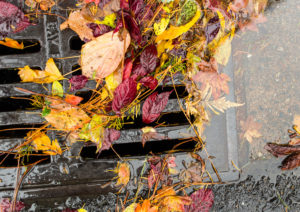Importance of Proper Yard Waste Disposal
By GuestThe Neponset Stormwater Partnership is reminding residents to rake up their leaves to reduce water pollution and prevent flooding!
Fallen leaves are loaded with natural fertilizer, which can cause water pollution that harms people and animals. Leaves that are left near the side of the road can cause flooding when they block storm drains and waterways.
Keep the ponds and waterways in your community clean and healthy this fall with a few simple steps:
* Never dump leaves in wetlands or waterways (it’s harmful and illegal).
* Bag leaves in paper bags for disposal by your town (check your town’s disposal schedule).
* Or compost your yard waste at home in an area away from wetlands and storm drains.
* Keep paved areas and storm drains clear of leaves.
* Make sure your lawn service is properly disposing of all your waste.
* Mow your leaves with a mulching mower and let them stay on the lawn as a natural fertilizer.
Leaves as Water Pollution? Really?
What could be more natural than leaves in the fall? The problem isn’t the leaves. It’s what people do with their leaves and the way our stormwater infrastructure works.
Freshly fallen leaves contain a natural fertilizer called phosphorous. When phosphorous gets added to streams, ponds and wetlands, it serves as an especially powerful fertilizer in the water. It encourages lush growth of pond weeds and algae in the spring that can interfere with swimming, reduce the amount of oxygen in the water needed to sustain fish and aquatic life, and in severe cases, contribute to the growth of cyanobacteria “blooms” that can be toxic to people and animals.
When leaves fall in the autumn, they quickly begin to decompose, and rain washes the natural fertilizers out of them. When leaves fall in a forest or on your lawn, these fertilizers get recycled into the soil and trapped there, helping plants grow in the spring.
But when leaves, grass clippings or other organic materials get dumped into wetlands, waterways or ponds, those natural fertilizers go right into our water and cause problems.
Similarly, when leaves or other yard waste are left on paved areas, rain washes those natural fertilizers into storm drains in your neighborhood that lead right to our waterways without first going to a water treatment plant.
Dumping of leaves can also cause blockages in storm drains and waterways that can cause flooding.
Town of Canton Yard Waste Collection
Yard waste may be disposed of at the Canton Yard Waste Recycling Facility at 99 Pine Street, which during the period from April 1 to December 14 is open Monday through Saturday from 7:30 a.m. to 4:30 p.m. Residents must display a yard waste recycling sticker on their vehicle, which can be purchased either at the facility or at the DPW Office at Town Hall. For more information, go to town.canton.ma.us/488/yard-waste.
Short URL: https://www.thecantoncitizen.com/?p=61397











